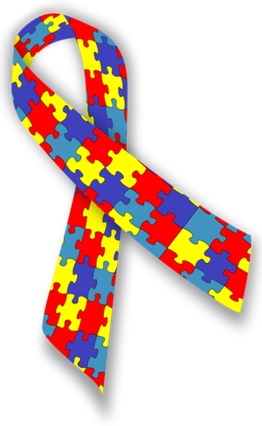Vitamin D May Improve Symptoms in Children with Autism

11/2016
Data from a double-blind randomized controlled trial demonstrated efficacy of vitamin D3 in autism spectrum disorder (ASD) patients. Full findings from the study are published in The Journal of Child Psychology and Psychiatry.
Previous studies have reported a vitamin D deficiency among children with autism but there have not been enough randomized controlled trials of vitamin D supplementation in children with ASD to measure its effect. A group of researchers evaluated 109 children aged 3–10 years with ASD; 85 were boys and 24 were girls. The objective was to assess the effects of vitamin D supplementation on the core symptoms of autism in children. Study patients were randomized to either 300 IU vitamin D3/kg/day (max 5,000 IU/day) or placebo for 4 months; serum 25-hydroxycholecalciferol (25[OH]D) was measured at the beginning and at the end of the study.
Study authors used the Childhood Autism Rating Scale (CARS), Aberrant Behavior Checklist (ABC), Social Responsiveness Scale (SRS), and the Autism Treatment Evaluation Checklist (ATEC) to evaluate the severity of autism and the children's social maturity.
The study found vitamin D supplementation was well tolerated by patients. There was a significant improvement in the autism symptoms of children in the treatment group after 4 months of supplementation but not in the placebo group. Based on the study data, high-dose vitamin D3 in children with ASD appears to be effective for improving symptoms.
"This study is the first double-blinded randomized controlled trial proving the efficacy of vitamin D3 in ASD patients," stated study author Khaled Saad. Oral vitamin D supplementation may help improve signs and symptoms of ASD and "could be recommended for children with ASD." Larger-scale studies are still needed to confirm this effect however.
http://www.empr.com/news/vitamin-d-may-improve-symptoms-in-children-with-autism/article/574399/
Data from a double-blind randomized controlled trial demonstrated efficacy of vitamin D3 in autism spectrum disorder (ASD) patients. Full findings from the study are published in The Journal of Child Psychology and Psychiatry.
Previous studies have reported a vitamin D deficiency among children with autism but there have not been enough randomized controlled trials of vitamin D supplementation in children with ASD to measure its effect. A group of researchers evaluated 109 children aged 3–10 years with ASD; 85 were boys and 24 were girls. The objective was to assess the effects of vitamin D supplementation on the core symptoms of autism in children. Study patients were randomized to either 300 IU vitamin D3/kg/day (max 5,000 IU/day) or placebo for 4 months; serum 25-hydroxycholecalciferol (25[OH]D) was measured at the beginning and at the end of the study.
Study authors used the Childhood Autism Rating Scale (CARS), Aberrant Behavior Checklist (ABC), Social Responsiveness Scale (SRS), and the Autism Treatment Evaluation Checklist (ATEC) to evaluate the severity of autism and the children's social maturity.
The study found vitamin D supplementation was well tolerated by patients. There was a significant improvement in the autism symptoms of children in the treatment group after 4 months of supplementation but not in the placebo group. Based on the study data, high-dose vitamin D3 in children with ASD appears to be effective for improving symptoms.
"This study is the first double-blinded randomized controlled trial proving the efficacy of vitamin D3 in ASD patients," stated study author Khaled Saad. Oral vitamin D supplementation may help improve signs and symptoms of ASD and "could be recommended for children with ASD." Larger-scale studies are still needed to confirm this effect however.
http://www.empr.com/news/vitamin-d-may-improve-symptoms-in-children-with-autism/article/574399/
